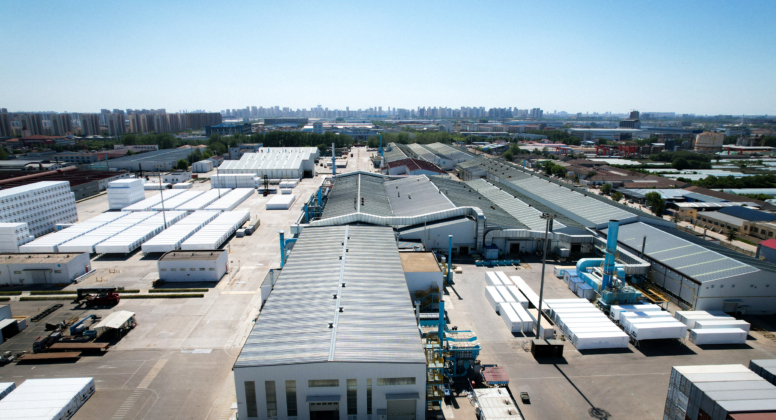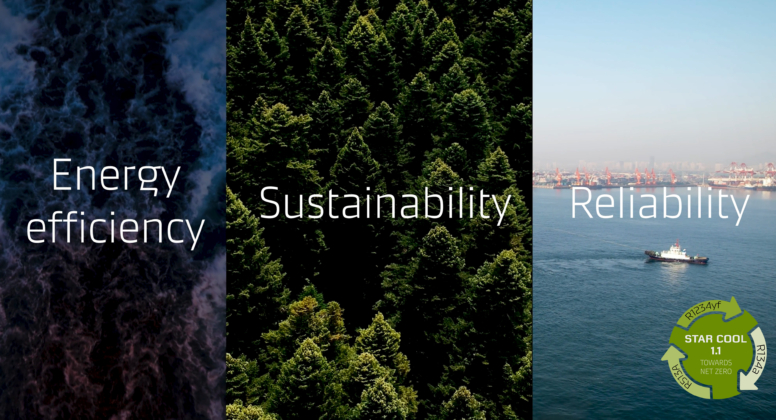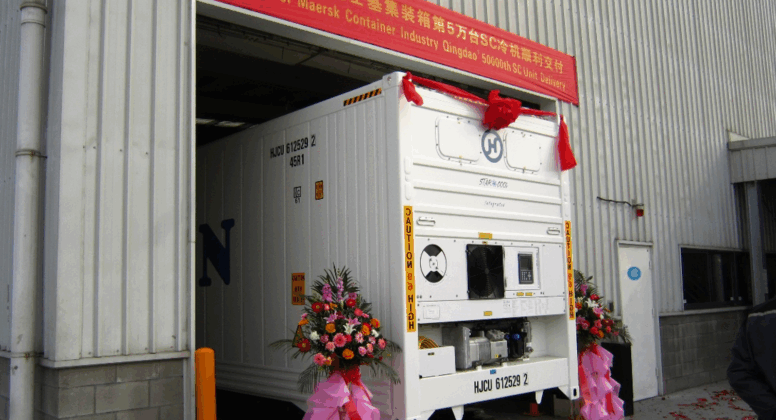Doubling Our Thermal Test Chambers at MCI Tinglev
At MCI, ensuring equipment reliability starts well before deployment. To support this, we have upgraded our testing facilities in Tinglev, Denmark, to better evaluate the performance of our Star Cool reefer units under a wide range of environmental conditions – from sub-zero to high-temperature extremes.
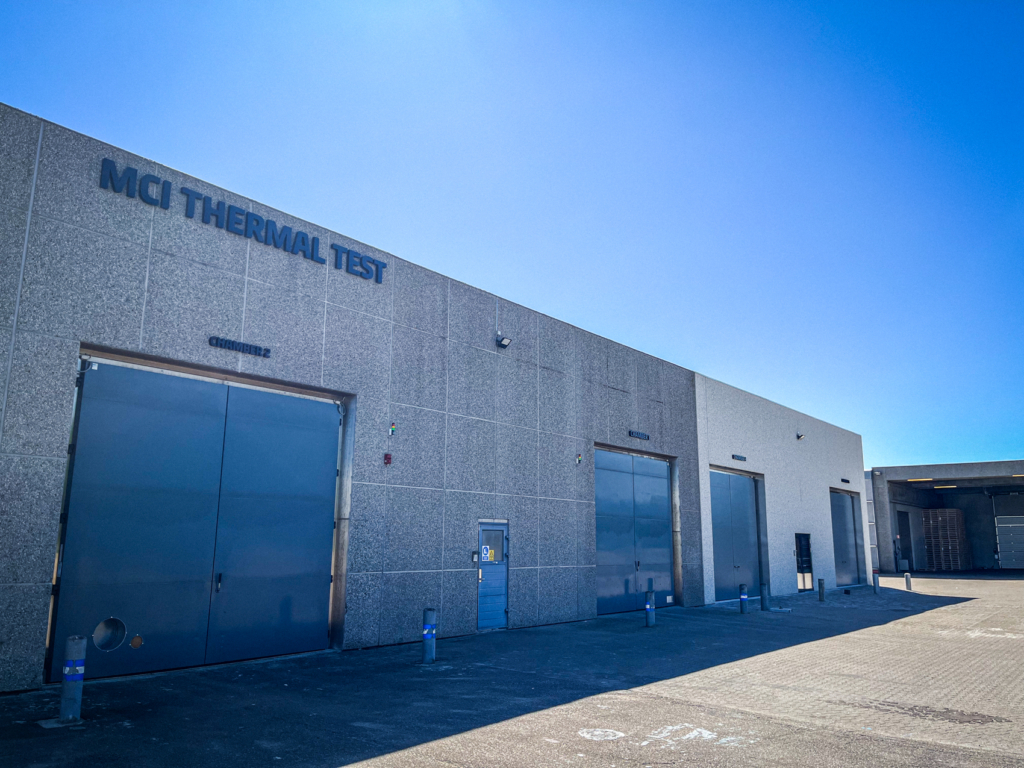
Development of Thermal Testing Capabilities
Since 2008, MCI has operated thermal test chambers designed to support environmental performance evaluations of reefer containers. The original two chambers prioritized high cooling capacity, enabling testing at temperatures as low as -30°C – an important parameter in assessing cold endurance and product reliability.
Over time, the setup was refined for improved temperature stability at moderate levels, particularly around 7.5°C. This temperature is central to standardized “heat leakage” tests that measure insulation performance under controlled conditions.
The test chambers also feature air circulation systems that help ensure consistent temperature distribution throughout the container during tests. Humidity levels can be controlled as well, allowing for more accurate simulation of a variety of ambient environments. In addition, integrated online surveillance allows for continuous data monitoring and documentation – enabling efficient tracking of test results and anomalies in real-time.
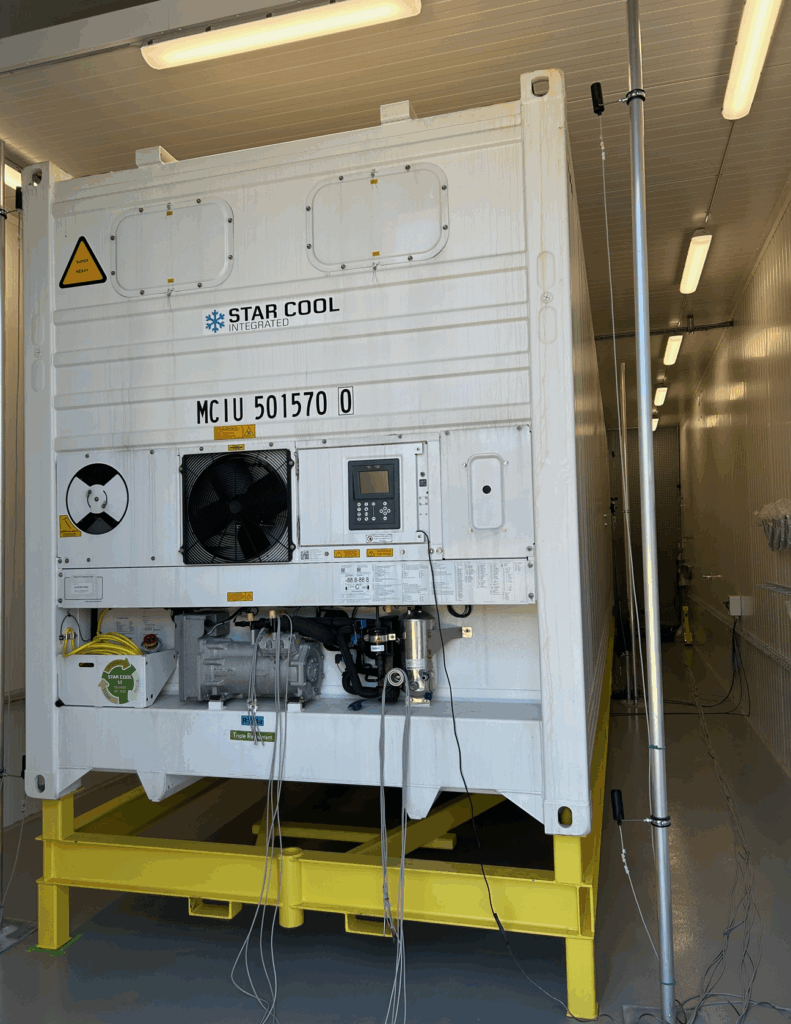
2024 Upgrades: Greater Control, Broader Scope
Built on more than 15 years of operational experience, the latest test chambers – Test Rooms 3 and 4 – introduce improved control systems and greater efficiency. These chambers allow for precise temperature regulation and system flexibility and can operate at lower capacity when needed. For performance testing, they can deliver peak outputs exceeding 200 kW – more than four times the capacity of the original setup.
All chambers can simulate environmental temperatures from -30°C to +60°C. This wide range supports testing under nearly any climate condition that reefer containers may face in global operation. The facility also includes solar radiation simulation – an important factor for evaluating thermal stress on containers (and a potential remedy for reefer winter depression).
Reflecting the growing number of refrigerant options in development and deployment, MCI’s expanded test capacity is driven by a clear operational need: to conduct more tests and deliver validated performance for each option. The chambers are powered using CO₂-based systems, which offer stable performance in this specific climate and help maintain consistent ambient conditions during testing. While CO₂ works well in this specific application, its suitability as a refrigerant varies depending on operating conditions – highlighting the importance of selecting the right solution for each use case.
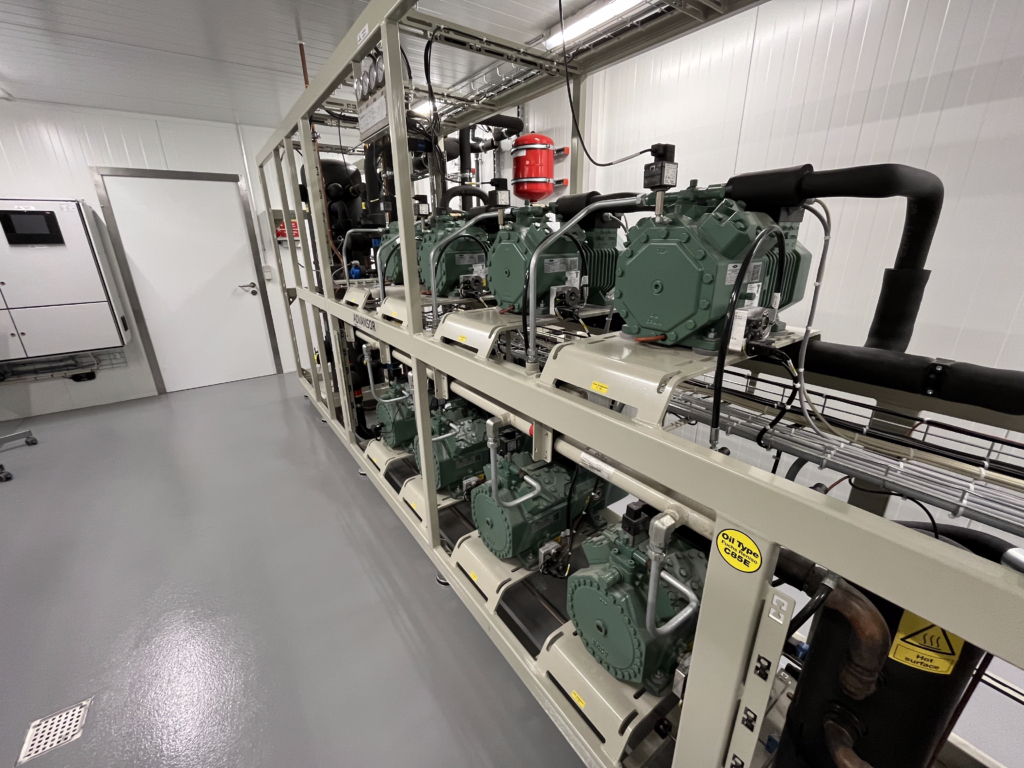
Testing Scope and Relevance
By simulating temperatures from -30°C to +60°C, the chambers enable comprehensive testing that reflects real-world use – from frozen food shipments to sensitive pharmaceuticals. The test setup supports continuous product validation and performance tracking, helping to ensure reliable performance across the cold chain.
With this expansion, MCI continues to reinforce its commitment to quality, innovation, and operational readiness in the reefer container segment.
